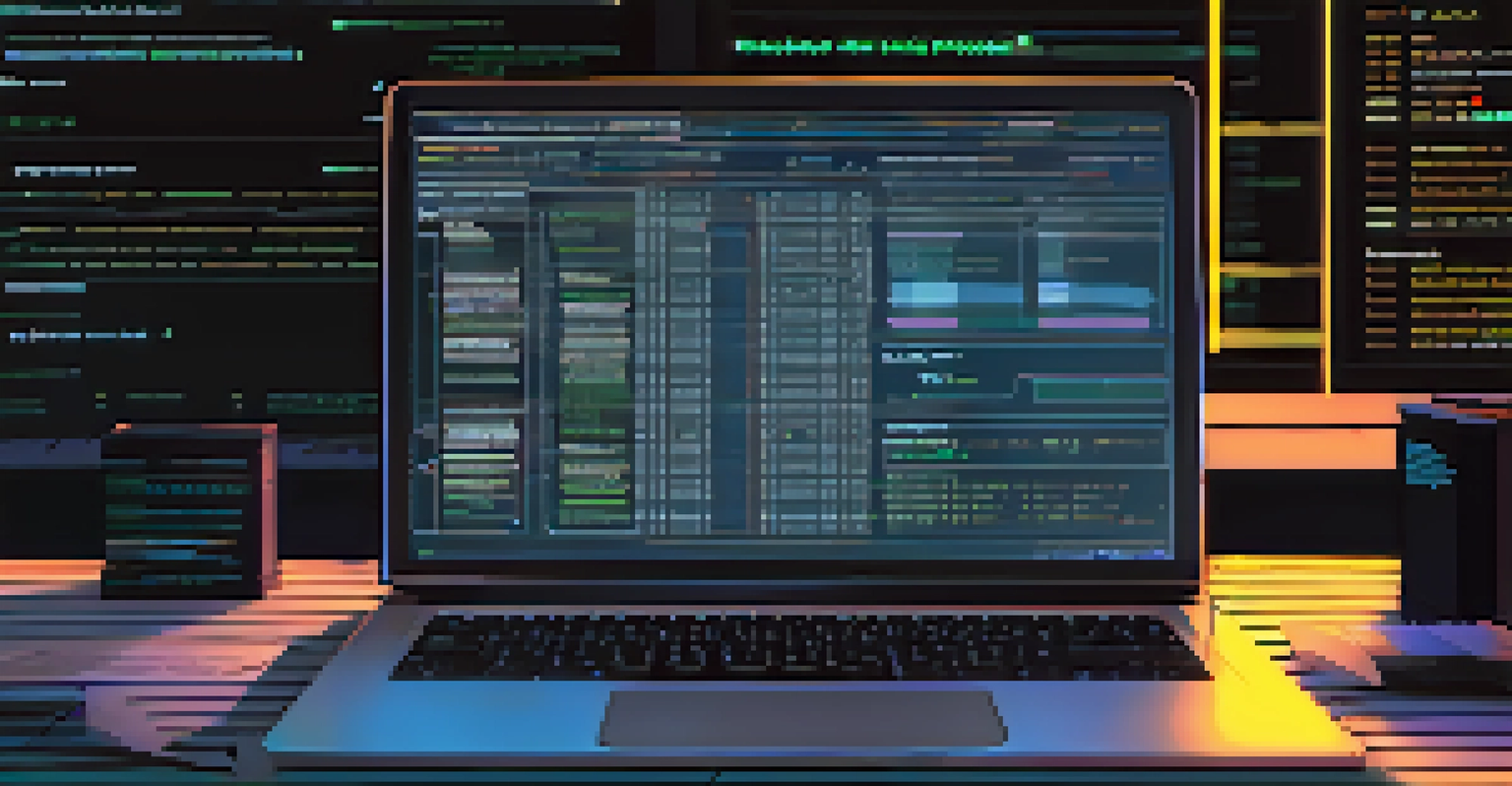Challenges Facing Smart Contracts: Security and Regulation Issues

Understanding Smart Contracts and Their Importance
Smart contracts are self-executing contracts with the terms of the agreement directly written into code. They automate processes and reduce the need for intermediaries, which can streamline transactions significantly. This technology holds immense potential across various industries, from finance to supply chain management, by enhancing transparency and efficiency.
Smart contracts are like digital vending machines. They execute transactions automatically when the right conditions are met, eliminating the need for a middleman.
Despite their promise, smart contracts are not without challenges. The reliance on code means that any bugs or vulnerabilities can lead to significant financial losses. As more businesses look to integrate them into their operations, understanding these challenges is crucial for successful implementation.
Related Resource
In essence, smart contracts represent a leap forward in contract management, but their adoption must be approached with caution. Awareness of the inherent risks is vital for any organization considering their use, ensuring they can harness the benefits while mitigating potential downsides.
The Security Risks Associated with Smart Contracts
One of the primary concerns surrounding smart contracts is security. These digital agreements are only as reliable as the code that underpins them. If there are flaws in the code, malicious actors can exploit these vulnerabilities, leading to severe financial repercussions.

For example, the infamous DAO hack in 2016 resulted from a vulnerability in the smart contract code, leading to the loss of millions of dollars worth of Ethereum. Such incidents underline the importance of thorough code audits and testing before deploying smart contracts in any real-world application.
Smart Contracts: Benefits and Risks
While smart contracts can enhance efficiency and transparency, they also come with significant security risks that need careful management.
Ultimately, ensuring security in smart contracts requires ongoing vigilance and a commitment to best practices in coding. Education and awareness about these risks are essential for developers and users alike, fostering a safer environment for smart contract transactions.
Regulatory Challenges in the Smart Contract Landscape
As smart contracts gain popularity, regulatory bodies are grappling with how to classify and regulate them. The decentralized nature of blockchain technology complicates things, as laws and regulations often lag behind technological advancements. This uncertainty can deter businesses from fully embracing smart contracts.
The greatest risk is not that the technology will fail, but that we will fail to understand its implications and potential.
Different jurisdictions have varying approaches to regulation, leading to a patchwork of rules that can confuse users and developers. For instance, some countries have started to recognize smart contracts legally, while others are still debating their status. This inconsistency can stifle innovation and hinder the growth of smart contract applications.
Related Resource
Navigating this regulatory landscape requires a proactive approach from businesses. Staying informed about changing regulations and engaging with policymakers can help shape a more favorable environment for smart contracts, ultimately fostering their adoption.
The Need for Standardization in Smart Contracts
Standardization is a crucial factor in addressing security and regulatory challenges around smart contracts. With multiple platforms and coding languages in use, inconsistencies can lead to confusion and increased risk. Establishing industry standards for smart contracts can help promote best practices and enhance security.
For example, creating standardized templates for common contract types could streamline the development process and reduce the likelihood of errors. Standardization can also facilitate regulatory compliance, as regulators can more easily assess and manage risk when they have clear guidelines to follow.
Regulatory Uncertainty Hinders Growth
The lack of consistent regulations across jurisdictions creates confusion, potentially stifling the adoption of smart contracts.
Encouraging collaboration among industry stakeholders is essential to establish these standards. By working together, developers, businesses, and regulators can create a more secure and efficient environment for smart contracts, paving the way for broader adoption.
The Role of Audits in Enhancing Smart Contract Security
Regular audits are an essential practice for ensuring the security of smart contracts. These thorough evaluations help identify vulnerabilities in the code before they can be exploited. By investing in external audits, organizations can significantly reduce the risk of security breaches and build trust with their users.
Auditors employ various tools and methodologies to analyze smart contracts, ensuring they function as intended. This process can uncover hidden bugs or logical flaws that might not be apparent during initial development. It’s similar to having a second pair of eyes review an important document before submission, catching mistakes that might have otherwise gone unnoticed.
Related Resource
Incorporating audits into the development process not only enhances security but also promotes a culture of accountability. As the smart contract landscape continues to evolve, the importance of audits will only increase, underscoring their value in maintaining trust and integrity.
Education and Awareness: Key to Overcoming Challenges
Education plays a pivotal role in addressing the challenges faced by smart contracts. Developers, businesses, and users must understand the potential risks and best practices associated with smart contracts. By fostering a culture of learning, stakeholders can work together to create safer and more effective smart contract solutions.
For instance, workshops, webinars, and online courses can equip individuals with the knowledge they need to navigate this complex landscape. Sharing real-world case studies and lessons learned can also promote awareness and encourage proactive measures to mitigate risks.
Importance of Audits and Education
Regular audits and comprehensive education are crucial to building trust and ensuring the security of smart contracts.
Ultimately, as more people become informed about smart contracts, the overall ecosystem will benefit. A well-educated community is better equipped to innovate, ensuring that the potential of smart contracts is harnessed responsibly and effectively.
The Future of Smart Contracts: Opportunities and Challenges
Looking ahead, smart contracts present both exciting opportunities and significant challenges. As technology and regulatory frameworks evolve, the potential applications for smart contracts will continue to expand. From automating complex transactions to enhancing trust in digital agreements, the future is bright if we can address the existing challenges.
However, achieving this will require collaboration among developers, regulators, and industry stakeholders. By establishing best practices, promoting standardization, and prioritizing security, the community can pave the way for broader adoption of smart contracts. This collective effort will help mitigate risks and foster innovation.

In conclusion, while the road ahead may be fraught with challenges, the rewards of successfully integrating smart contracts into various sectors are immense. By working together, we can create a landscape where smart contracts thrive, transforming the way we manage agreements and transactions.